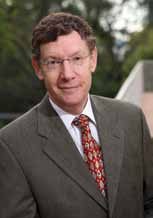Why People, Families, Commmmunities and Nations SUCCEED
 by Allen Weiss, MD, MBA, FACP, FACR
by Allen Weiss, MD, MBA, FACP, FACR
President and CEO, NCH Healthcare System
Why are some folks happy and successful? Why are some families likewise engaged, prosperous, and stable? Why are whole communities and regions growing, flourishing and safe? And, on a broader scale, why do some nations succeed while neighboring countries, with similar assets, fail?
Why Nations Fail is a book by Daron Acemoglu and James Robinson, two esteemed professors of economics from MIT and Harvard, respectively, with many examples and copious references addressing this interesting question. Their research and explanations center on historical examples and whole nations.
Scaling back from the international and historical perspective, I believe we have much to learn at regional, local, institutional,
and personal levels.
Why does southwest Florida continue to be so attractive? Why do we continue to grow with like-minded community supportive
citizens? Other communities in Florida and the southern crescent of the United States share similar climate, geographic attributes
and ethnic diversity. Yet the development and robustness of all these communities varies considerably—from disproportionately
nice to just the opposite.
For nations to succeed, many factors must come into play— appropriate economic institutions, laws especially for protecting
private property, class mobility, an open pluralistic political system with real competition for political office, as well as avenues for
new political leaders.
This is also true for communities. Having involved citizens who are interested in the welfare of others, their community and of course themselves makes for an environment which is measurably better, more engaged, and much more prosperous. This “virtuous cycle” is, I believe, exactly what southwest Florida has experienced over the past nearly four decades that I have been privileged to live and work here. Ideally, we would like to continue on this positive journey and not be sidetracked by the negative influences of a few who do not have the interests of the majority in mind.
Positive motivations can minimize inequalities and maximize efficiencies, achieve prosperity and create better futures for the
next generations. Conversely, getting it wrong is mostly not about ignorance or culture—but rather the selfishness of those in power to extract resources for their own benefit or the benefit of a few select friends and associates.
This selfishness reveals itself in the political process when there is an overall dominance of an “elite” coterie. We see examples of these extremes in political dictatorships, and a prime example is the one geographically closest to Florida. Although Cuba is rich in natural beauty with a long history of sophisticated culture, its economic constraints have frozen the island’s infrastructure in the middle of the last century.
We can see the profound positive differences when we focus on the good of the entire society. Assimilation of immigrants for
more than 250 years has helped make America the most prominent nation in the world in terms of influence. Public education, starting at the pre-school level, has been and will continue to be a wonderful way to bring the next generation into the mainstream.
Now more than ever we need strong public education for all. In America today more than 50 percent of children under age five are minorities. More than half of Collier County’s public school children now live in a non-English speaking primary home. A profound change in demographic patterns? Please think back to your own ancestry. Unless you are of Native American descent, your parents, grandparents, or great grandparents crossed some ocean, earned a living, wanted a better life for their children, contributed to the political process by voting, and to the government by paying taxes.
By not having a monopoly, avoiding a single party system, encouraging free enterprise, enthusiastically embracing rational approaches to issues of common interest, and avoiding “sub-optimization,” we all can have a better and longer sustainable existence.
Sub-optimization deserves special explanation. Sub-optimization is a situation where a process, procedure, or system yields
less than the best possible outcome or output, caused by a lack of best possible coordination between different components. In
essence, the whole is smaller than the sum of the parts when one component maximizes its advantage to the detriment of the other components.
“The Tragedy of the Commons,” is the usual example used in business schools to illustrate sub-optimization. Sheep herders in
New England shared a common plot of land to graze their sheep. If one sheep herder allowed his or her sheep to over-graze the
common plot, the grass would die and the other herder’s sheep would starve. However, if every herder were prudent and allowed
only enough grazing to sustain the sheep and allow the commons to thrive, everyone in the group would thrive.
This same principle can be applied to Newfoundland fisheries in terms of not being overfished and thus sustaining productive
commercial fishing. However, if one country maximizes the catch over a period of time, then the productivity of the region will
plummet. Nobel prizes in economics have been awarded as recently as 15 years ago for explanations about the microeconomics of suboptimization.
Economic Choices by Daniel L. McFadden is a thesis explaining this concept in great detail.
http://www.nobelprize.org/nobel_prizes/economic-sciences/laureates/2000/
mcfadden-lecture.pdf
I believe that sustained development, the greater good for a community, and successful people wanting others to succeed are
all principles that have made southwest Florida so successful. Yes, there are detractors, those whose self-interests exceed the
interests of the many. But in general, when we look back at the classic leaders in southwest Florida and the names of the families
who created our communities’ common resources—parks, roads, healthcare systems, religious organizations, cultural institutions— we see sustained development.
Self-centered, disruptive people or factions can and have temporarily been influential. But long term, the public will look for
and support those who do the right thing often enough and get the right result.
The greater good—be it for education, healthcare, public safety and infrastructure—will ultimately win out over self-directed,
egocentric interests. By all of us staying well-informed, we can continue to direct our energies to being an example of the best
community in the country –and help everyone live a longer, happier, and healthier life.


Leave a Reply
Want to join the discussion?Feel free to contribute!